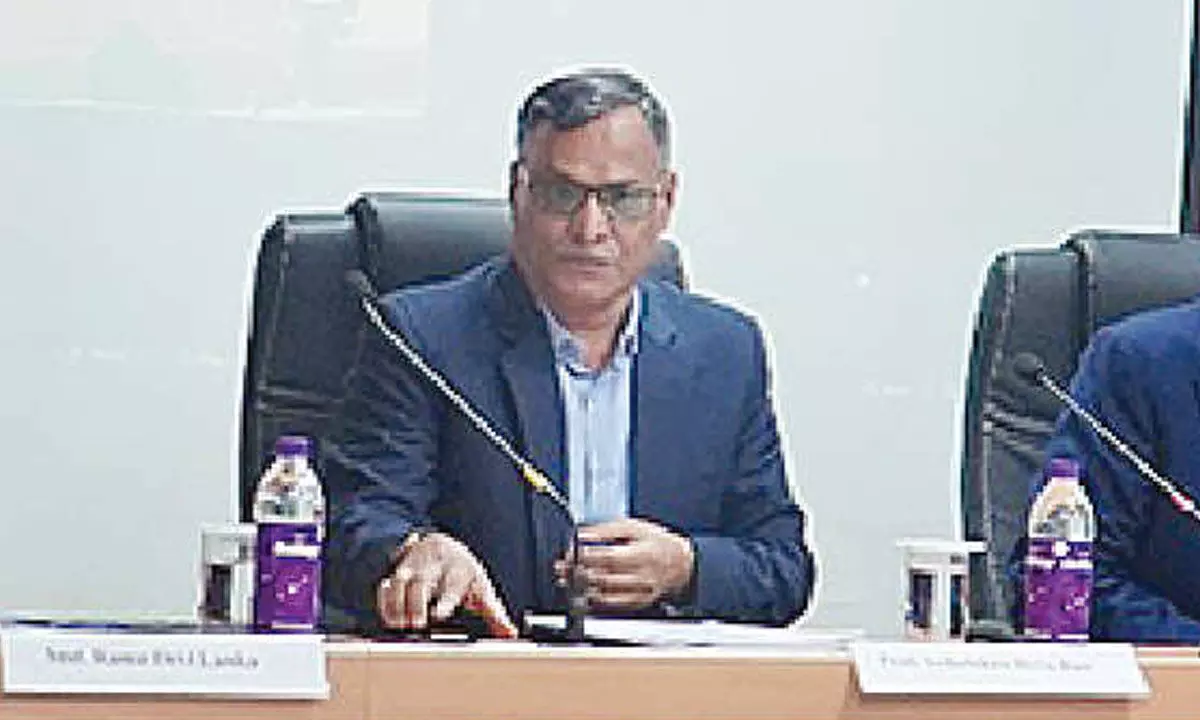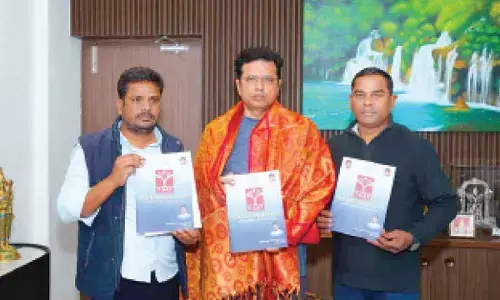Conference dwells on adoption of AI in judicial system

The NALSAR University of Law, in collaboration with the Law Commission of India, organised a one-day conference on Artificial Intelligence (AI), Law, and Justice in India on Saturday.
Hyderabad: The NALSAR University of Law, in collaboration with the Law Commission of India, organised a one-day conference on Artificial Intelligence (AI), Law, and Justice in India on Saturday. The event at NALSAR brought together experts from government departments, academia, legal tech, and industry to discuss the rapidly evolving intersection of AI and law.
The conference aimed to address the adoption of AI in the legal and judicial system, exploring its potential to transform law and justice in India. With the Supreme Court of India already using AI-facilitated SUPACE and integration of AI-based tools in the e-Courts Modernization Phase III, the conference delved into the opportunities and challenges presented by AI in the legal sector. The conference featured two sessions, “AI in Law and Justice in India: Present and Future” and “AI and Principle of Justice & Implications for Justice (Chat GPT, Generative AI, and Emerging Trends).”
Eminent speakers, including Rama Devi Lanka, Director of Emerging Technologies in the Department of Information Technology, Electronics & Communication of the Government of Telangana, and Dr Reeta Vasishth, member-secretary of the Law Commission of India, shared their insights on the impact of AI on law and justice. The conference highlighted the need for a robust legal framework to address challenges like data privacy and AI ethics. Speakers stressed the importance of multidisciplinary education and continuous learning to keep pace with the rapid technological advancements. The conference also underscored the importance of transparency, trust-building, and regular audits in addressing concerns around AI hallucinations, bias, and the loss of human empathy.
It is one of several initiatives that NALSAR is taking on the theme of AI, law, and justice. The university is working with UNESCO on AI and its use by the judiciary and developing courses in responsible AI with the Center for Responsible AI (CeRAI), IIT-Madras.
The conference concluded with a valedictory session that underscored the need for careful consideration and adoption of Artificial Intelligence integration into the legal system.
To balance its capabilities with ethical and legal safeguards. The event marks the beginning of a series of workshops, seminars, and conferences to be held in future, furthering the discussion on AI, law, and justice in India.
















